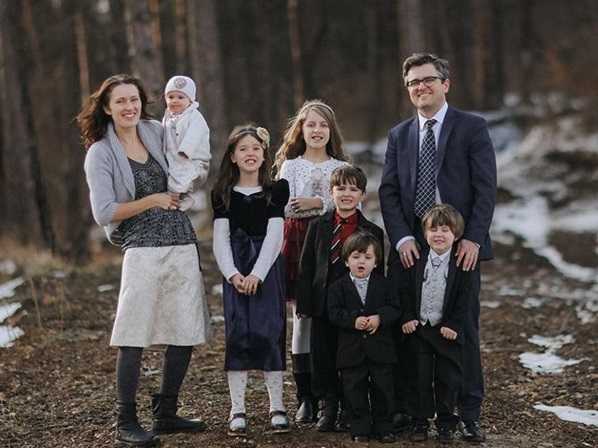 STRASBOURG — The European Court of Human Rights has agreed to hear the case of a Norwegian family whose children were seized in 2015 after the school principal called authorities to express concern over the manner in which the children were being raised by “radical Christians.”
STRASBOURG — The European Court of Human Rights has agreed to hear the case of a Norwegian family whose children were seized in 2015 after the school principal called authorities to express concern over the manner in which the children were being raised by “radical Christians.”
“Parents have the right to direct the upbringing of their children. Norway intervened in the family life of the Bodnariu family by taking the five children into state care without any compelling reason. Removing children from their families should always be a last resort,” said Robert Clarke, director of European advocacy for Alliance Defending Freedom International (ADF), in a statement.
As previously reported, in 2015, Norway’s child welfare agency, Barnevernet, seized Marius and Ruth Bodnariu’s two daughters, two sons and then-baby Ezekiel after being informed of concerns about the home life and upbringing of the children.
The two eldest children were reportedly removed from school without their parents knowledge, and Barnevernet representatives soon also arrived with police at the Bodnariu home, where they seized the remaining children, minus the baby. The organization returned the following day and removed the infant as well when attempts by the Bodnarius to resolve the matter were not successful.
Marius Bodnariu’s brother, Daniel, who is a pastor, explained in an online statement that the matter began when the children’s principal contacted welfare services after expressing concerns over how they were being raised, including in regard to the family’s Christian beliefs.
“The process of confiscating the Bodnariu children started when the Vevring School principal, the middle school attended by Eliana and Naomi, called the Barnevernet and expressed her concerns regarding the girls’ religious upbringing, her understanding that the girls are being disciplined at home, and that she considers the parents and grandmother to be radical Christians; an overriding concern that the principal’s perception of the parents’ and grandmother’s religious beliefs inhibit and handicap the girls’ development,” he outlined.
Peter Costea, the president of the Alliance for Romania’s Families, an attorney who has had access to court records surrounding the case, also concluded that the family’s faith was a factor in the children’s seizure.
“Documents and minutes of meetings have emerged since the abduction showing that as early as … more than a month before the children were taken into custody, the officials at Naustdal municipality disapproved of the parenting style of the Bodnariu parents, believing it, after questioning the children, to be based on the Bible,” he explained. “They plainly state that Barnevernet ‘is worried that this is a way of upbringing which is justified by the Bible.’”
Costea outlined that “[t]he documents also mention that the children were ‘brought up to respect God and their parents’ values.’”
“Barnevernet interpreted this as a possible conflict between the children’s assumed inability to live up to their parents’ value expectations and faith and that the parents’ religion could create an ‘inner conflict’ in the children and a stressful family environment,” he continued. “Religion is bad for children, Barnevernet’s minutes seem to say, and too much religion is lawful justification for snatching children away from their parents.”
During the course of the case, the discussion turned to abuse allegations as Barnevernet expressed concern that the children might have been spanked, which is illegal in Norway. The grandparents of the children, who have lived with the family at times, rejected the allegations completely.
“We can assure that we have never seen that violence has been used against the children,” the grandfather said in a blog post. “Not even that they have raised their voices to them. The children themselves have never told us that the parents have been nasty to them.”
In realizing that the seizure was unjust, the matter resulted in protests against Barnevernet around the world. In June 2016, the children were returned to their family. The Bodnarius then fled Norway to find freedom elsewhere, and Mrs. Bodnariu gave birth to a sixth child.
Attorneys for the family soon filed a complaint before the European Court of Human Rights, stating that Norwegian officials had violated Article 8 of the European Convention on Human Rights, which protects the right to privacy within a family.
The court has now agreed to hear the case. ADF International filed an intervention in the case, Bodnariu v. Norway, on Thursday.
“Recent years have seen an increasing number of cases of overreach by the Norwegian state into family life, with numerous cases coming before the European Court of Human Rights. The Bodnariu case resulted in an international outcry and the Bodnariu family fleeing Norway,” Robert Clarke, director of European advocacy, said in a statement.
“No family should be put through such an ordeal, especially not at the hands of the state. We are encouraged by the decision of the European Court of Human Rights to hear this case.”
As previously reported, Barnevernet also took a young child into custody in 2018 as his parents had been homeschooling him for a time since he had been bullied at school. Leif and Terese Kristiansen had planned on sending their son back to school once they found a better location for him to attend.
According to Ray Skorstad, founder of the legal assistance group Barnets Beste, the government took Kai because they believed the child needed to be in school for “socialization purposes” and thought that the family was “avoiding them.” Following intervention from the Homeschooling Legal Defense Association (HSLDA), the boy was allowed to return home with his parents.
Become a Christian News Network Supporter...


